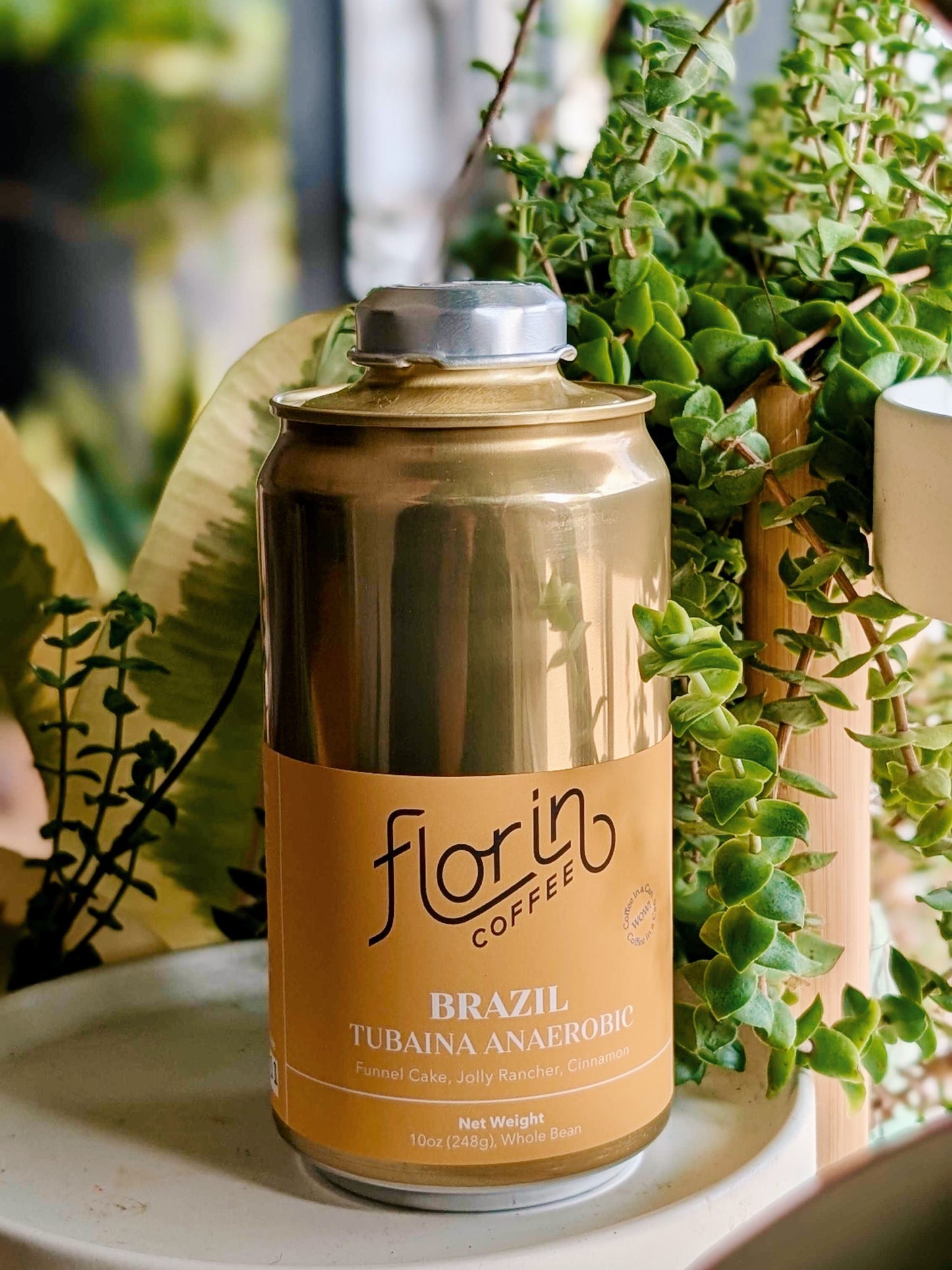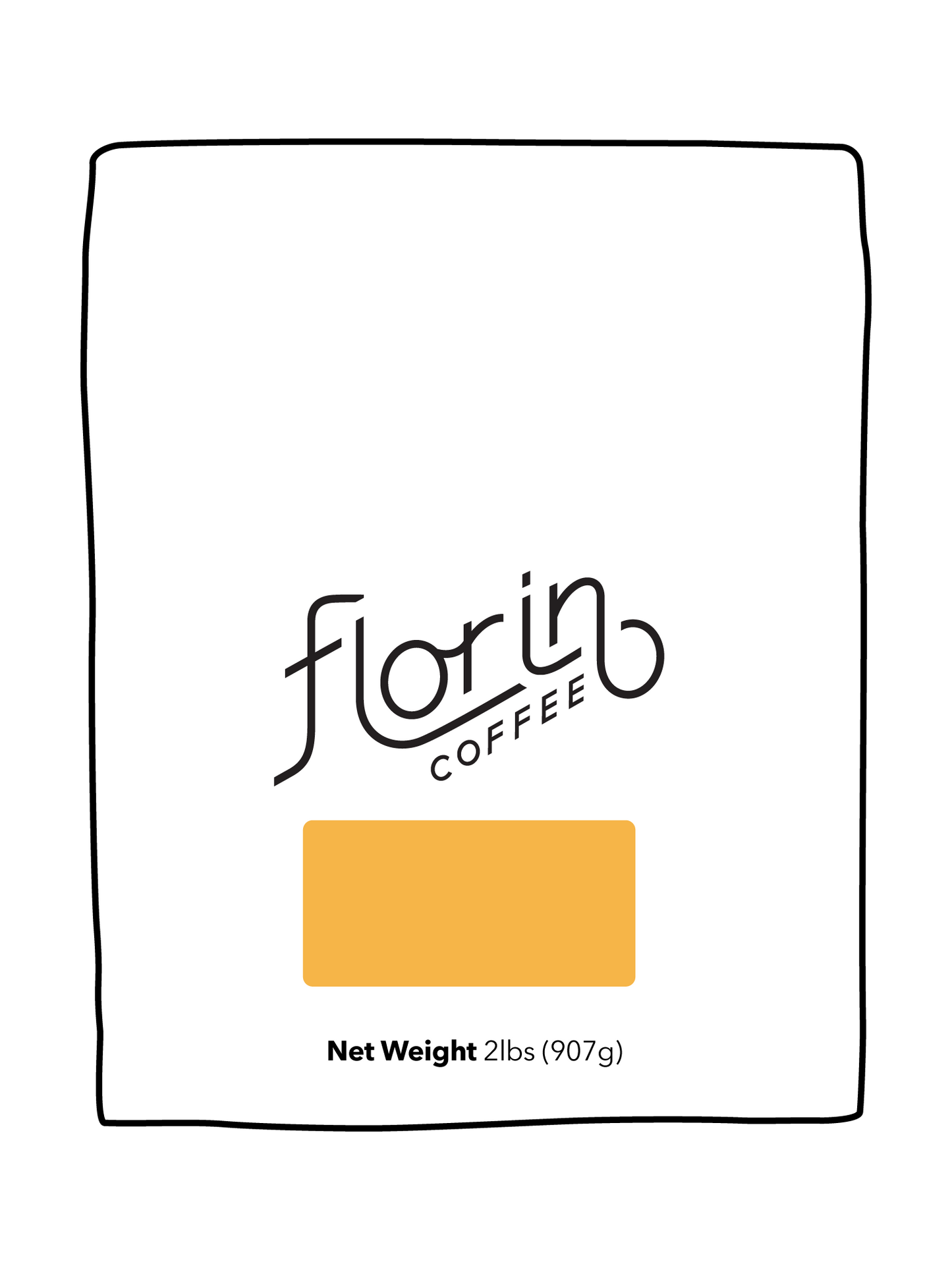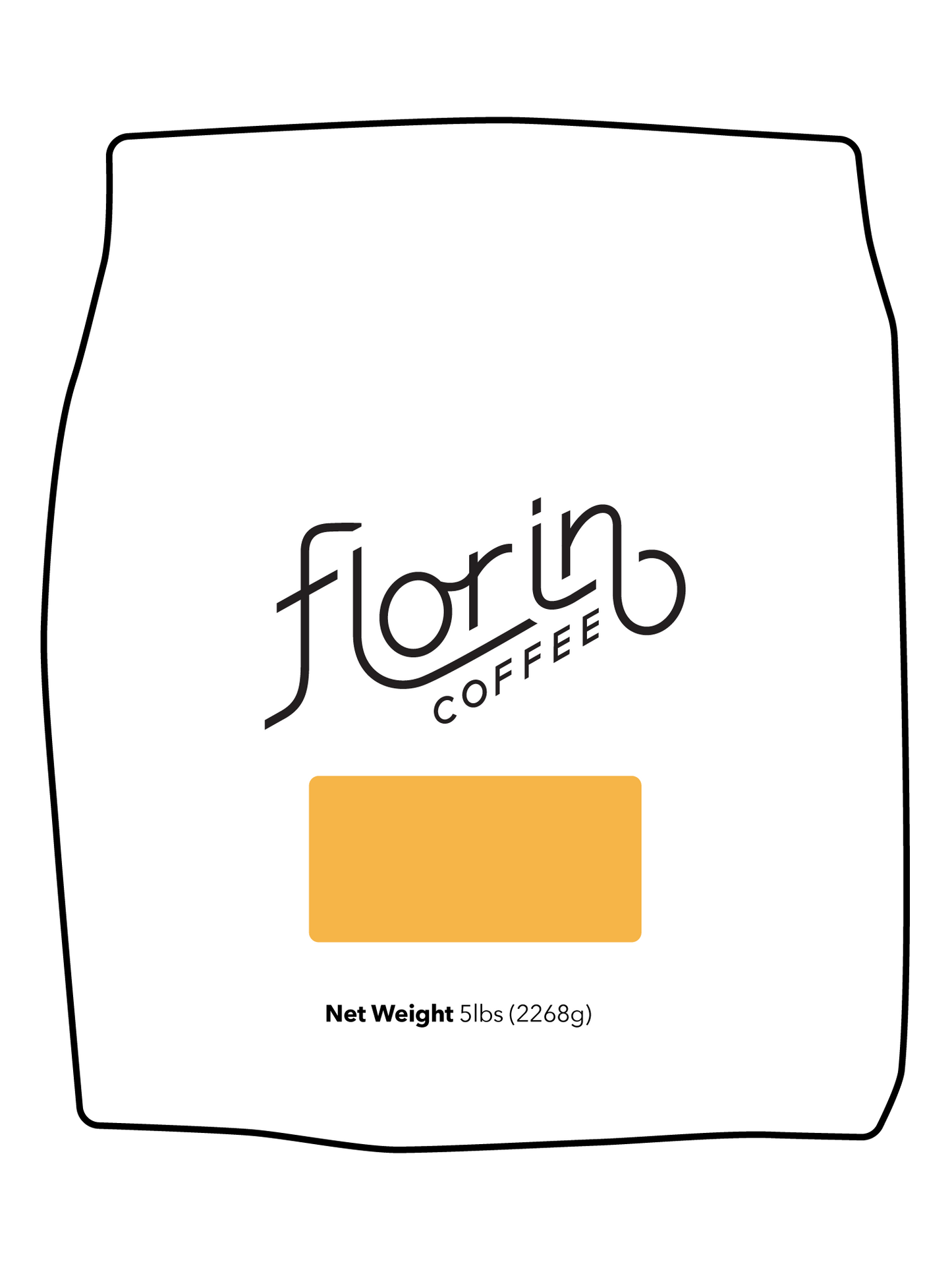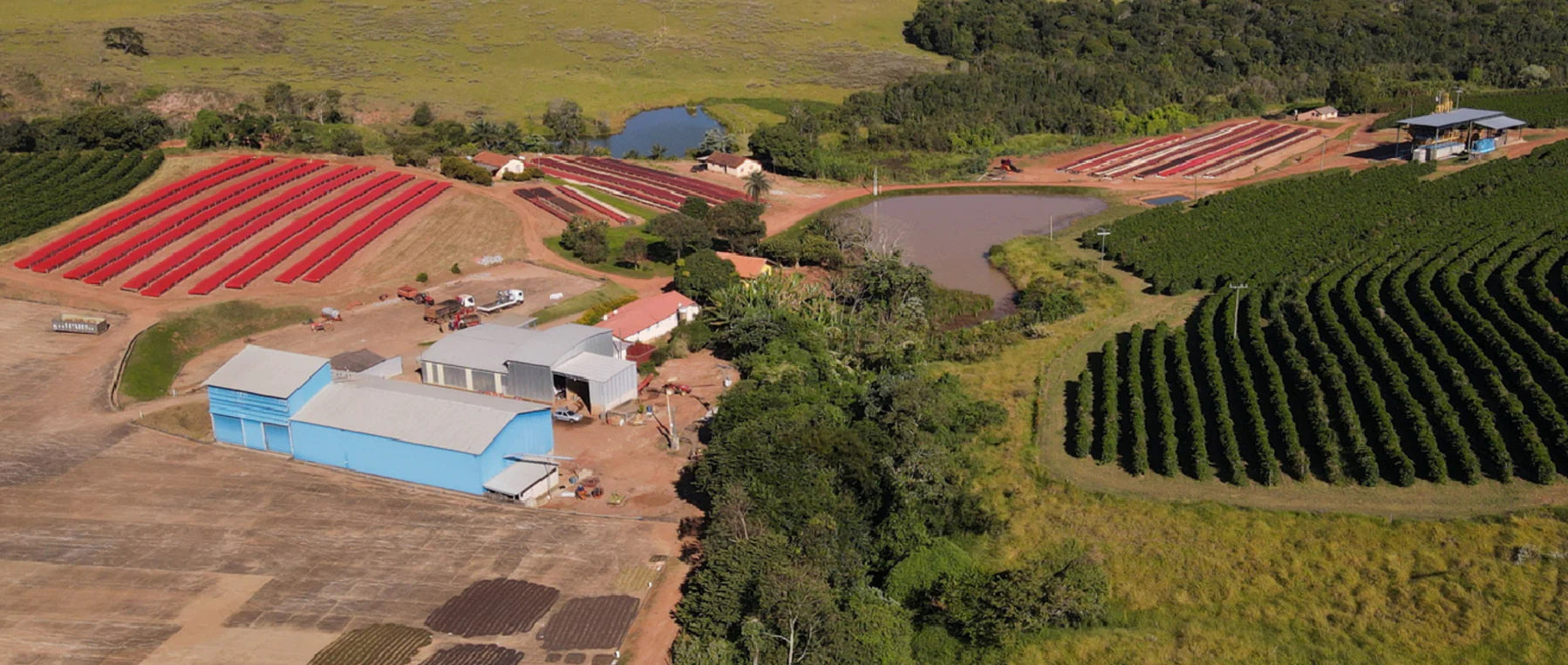FUNNEL CAKE, JOLLY RANCHER, CINNAMON
Brazil Tubaina Anaerobic
Brazil Tubaina Anaerobic
Couldn't load pickup availability
Producer: Faleiros Family
Region: Alta Mogiana
Varietal: Catuai 99
Altitude: 1200 masl
Process: Anaerobic
Importer: Orange Brown Imports
Tasting Notes: Funnel Cake, Jolly Rancher, Cinnamon
Roast Level: 2

Whole Bean
Whole Bean
Note: All coffee is sold Whole Bean. To learn why, check out this Blog Post. If you'd like your coffee ground, please say so in the Special Instructions box at checkout. Let us know what device you're brewing on so we can get the grind right (ie. Ground for French Press).
Shipping & Fulfilment
Shipping & Fulfilment
Roasted on Monday and Thursday, shipped the day after.




FALEIROS FAMILY
With over a century of coffee-growing heritage, the Faleiros family runs Santa Monica Farm in Brazil’s prized Alta Mogiana region, known for its sweet, high-altitude coffees. They combine traditional expertise with cutting-edge technology, including a custom processing station and the world’s largest suspended drying patio, to craft exceptional specialty coffees. Their dedication to sustainability is evident, with more than 40% of their land preserved, ensuring each reddish-orange coffee cherry is as vibrant in flavor as it is in appearance. In the anaerobic coffee process, harvested coffee cherries are placed in sealed tanks or containers with limited or no oxygen, allowing fermentation to occur under controlled conditions. Specialized yeast or natural microbes break down the fruit sugars over a set period (in Tubaina’s case, 60 hours), producing distinct flavor compounds. This method often results in vibrant, complex profiles—like pronounced fruitiness or unique sweetness—while giving producers precise control over the coffee’s final taste.





